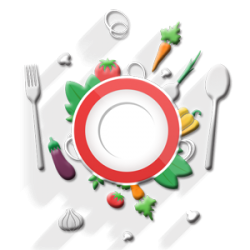
Eat Mostly Plants and Not Too Much
Module 1 of The Holistic Wellness Program
As renowned author and activist Michael Pollan states: “Eat food, not too much, mostly plants.”.
A diet high in minimally processed, predominantly plant-based foods is linked with lower risks of most chronic diseases and enhanced health and well-being.

1) Choose a predominantly plant-based diet:
a. Aim to cover half of your plate with produce at each meal.
b. Aim to add vegetables to the dishes you prepare (for example: add onions, spinach, and carrots and mushrooms to your meatball sauce).
c. VB6: Follow chef Mark Bittman’s approach and consume only vegan foods before 6pm.
2) Choose 2-3 fruits a day. Minimize fruit juice (it can contain as much/ more sugar than soda). Incorporate brightly colored fruits for maximal health benefits.
3) Choose at least 3 servings of vegetables a day. If you currently eat only one serving a day, add one more on a consistent basis. If you already eat three servings, aim to bump that up to four or five a day
a. Aim to eat one half cup serving of cruciferous vegetables (broccoli, cauliflower, kale, cabbage, Brussels sprouts, mustard and collard greens). These are an amazing source of micronutrients and are specifically helpful to the liver in detoxification. Compounds from this family of vegetables have been found to decrease the risk of a number of cancers.
b. Aim to add exotic mushrooms to the diet (shiitake, mistake, porcini, oyster mushrooms). Cook all mushrooms thoroughly. These mushrooms have wonderful immune modulating properties.
c. Aim to eat at least one serving a day of allium family vegetables (garlic, onions, leeks, shallots).This family of vegetables is beneficial for the immune system and for detoxification.
d. Starchy vegetables (such as beets, carrots, potatoes, sweet potatoes, winter squash) should be enjoyed but kept to within 1-2 servings a day since they are high in carbohydrates.
e. Experiment with sea vegetables (nor, wakame, dulse, kelp) which are an excellent source of minerals and contain a substantial dose of iodine which is required for thyroid function.


